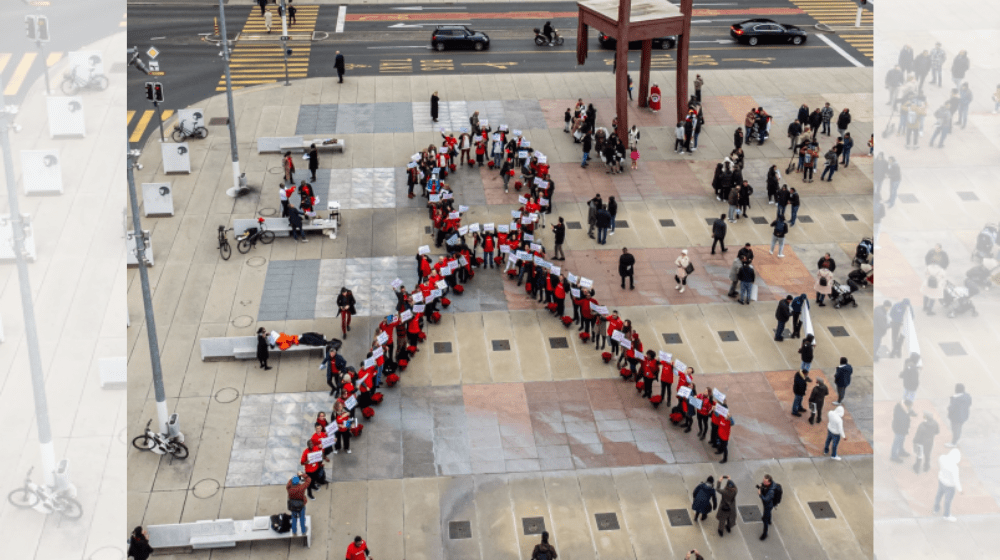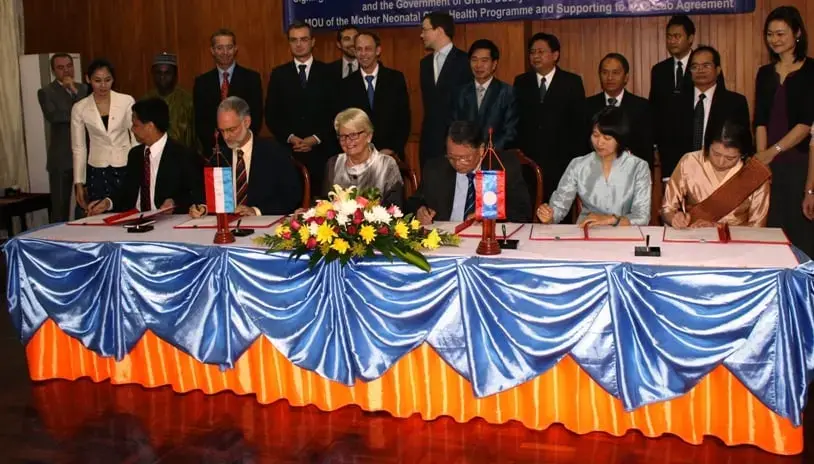(KPL) On World AIDS Day, December 1, a new UNAIDS report (Dangerous Inequalities) showed that unequal access to rights, services, science, and resources is preventing us from ending the AIDS epidemic. Dangerous Inequalities unpacks the impact on the AIDS response of gender inequalities, as well as disparities faced by key populations, and between children and adults.
It also sets out how worsening financial constraints are making it more difficult to address these inequalities.
For the Lao PDR and the wider Asia-Pacific region, the report highlights some harsh facts – most critically that the daily reality of thousands of people with worsening economic situations and tighter budgets are making it harder to address these inequalities.
Last year, Asia-Pacific region had around six million people living with HIV, 260,000 new infections, and 140,000 AIDS-related deaths. In 2021, the Lao PDR had an estimated 15,000 people living with HIV, in which 76% of people living with HIV were diagnosed, 75% of those diagnosed were on treatment, and 98% of those treated were virally suppressed - meaning the virus presence is so low, it is virtually undetectable.
Although overall new HIV infections in the Lao PDR have declined by 21% since 2010, new HIV infections are increasing within sub-populations, such as among young people and key populations - men who have sex with men, transgender women, people who use and inject drugs and female sex workers. There has also been an increase in sexually transmitted infections among female sex workers; between 2014 and 2020, reports of chlamydia increased by 18% and gonorrhea increased by 13%.
There are good reasons why prevention approaches that work for the general population aren’t as effective with the most marginalized and vulnerable among us in our communities. For people from these communities, services that others take for granted — going to the clinic, requesting social support or making a police report — can be a challenge, and could put them at risk of arrest or compulsory detoxification in the name of treatment.
In the post-COVID-19 and economically challenged era we currently find ourselves, the consequences of this are greater than ever. Young women, girls, and key populations face increasing risks and vulnerabilities for gender-based violence, sexual abuse, and exposure to HIV or other sexually transmitted infections.
Laws, policies and harmful practices fuel the stigma and exclusion they face each day. We cannot end AIDS among young people and key populations unless we address the factors in our society that exacerbate inequalities. We must work together to eliminate stigma and discrimination, particularly ensuring HIV services are accessible, HIV self-test kits available, and barriers that cause stigma and discrimination are eliminated.
Failure to make progress on meeting the needs of key populations and allowing dangerous inequalities undermines the entire AIDS response and jeopardises health security for everyone.
HIV prevention for young people and key populations remains a priority.
Investments to address HIV-related inequalities are urgently needed. Progress has been made, but to reduce our commitment now risks the loss of all we have gained. At a time when international solidarity and funding are most needed, too many high-income countries are cutting global health aid. It will cost lives.
In 2021, HIV programmes in low- and middle-income countries experienced an US$ 8 billion shortfall. Sustaining financial support is vital to getting the AIDS response back on track. As the new UNAIDS report shows, donor funding also helped catalyze domestic funding: increases in external HIV funding for countries from PEPFAR and the Global Fund during 2018-2021 were met with significant increases in domestic funding.
Now however, national health budgets are decreasing. The Lao PDR is currently experiencing economic challenges which have decreased the central health budget. Coupled with currency depreciation and high inflation rates, concerns emerge regarding the levels of available funding to pay for medicines, diagnostics and vaccines.
Millions of lives are at stake.
We know what is required and the evidence is clear. Protecting the rights of marginalized people expands access to HIV prevention services, increases the number of people being treated, widens access to prevention tools and reduces new infections and deaths. Together, this accelerates our response to HIV.
Countries have the power to overturn laws that criminalize and marginalize entire communities. Gender-based violence can be challenged. Children can be protected by investing in education and health.
All over the world, people are mobilizing to challenge the injustices that keep people away from lifesaving HIV treatment, care and prevention services.
Together, it is possible to end AIDS as a public health threat by 2030 but only if governments act now to equalize access to HIV services for everyone.
The Government of the Lao PDR and other southeast Asian leaders have made a commendable and renewed commitment through the ASEAN Leaders’ Declaration on Ending Inequalities and Getting on Track to End AIDS by 2030. In it they pledge to take concrete steps toward ending inequalities; strengthening, supporting and sustaining community-led responses; and financing the AIDS response. This is a much-welcomed step.
Tackling inequalities will not only help the marginalized. It will help everyone.
We call on everyone – government, private sector, development partners, civil society, and communities – to unite and address the inequalities preventing the end of the AIDS epidemic.
To keep everyone safe, and to protect everyone’s health, we need to #Equalize.
Op-Ed written by Heads of Agencies of the UN Joint Team on HIV in the Lao PDR
Patricia Ongpin, UNAIDS Country Director
Mariam Khan, UNFPA Representative
Erland Audunson Falch, UNODC Country Program Manager
Ying-Ru Jacqueline Lo, WHO Representative



